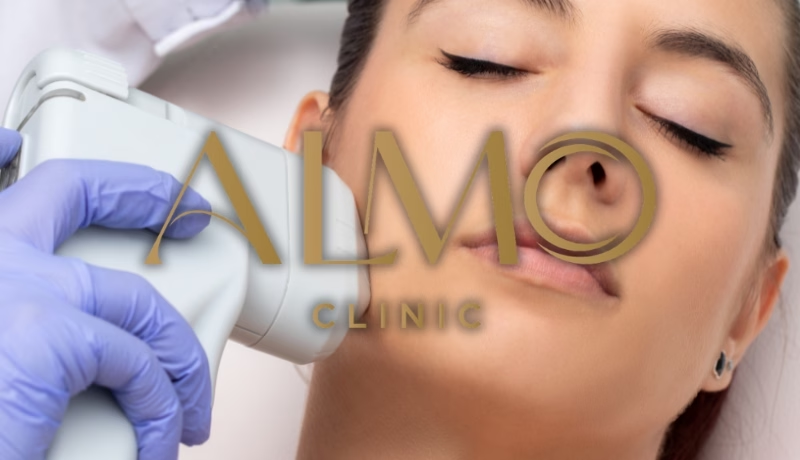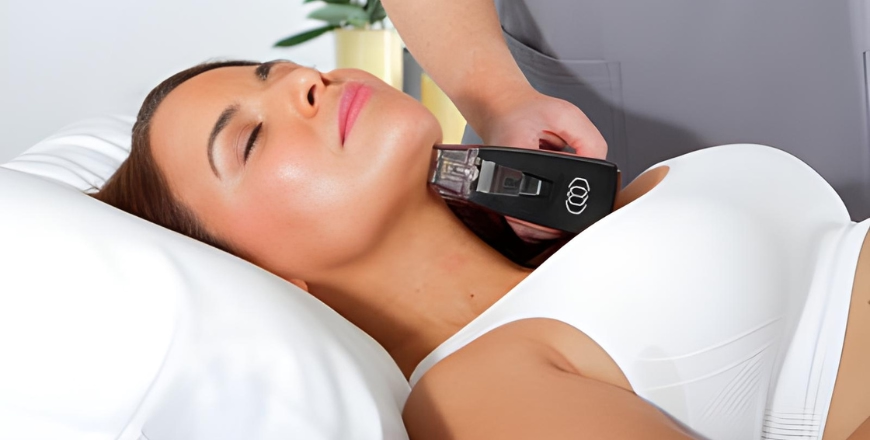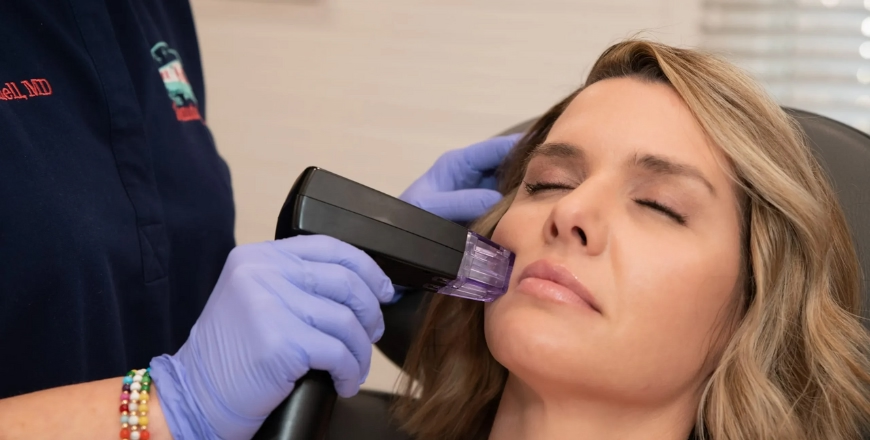Medical transparency without filters
“Doctor, what side effects does Liftera really have?”
This question deserves a complete and honest answer. Liftera is safe, not free of side effects.
The difference lies in intensity and duration. Compared to surgical alternatives or traditional HIFU, the effects are minimal and temporary.
Frequent side effects
Temporary redness
Incidence: 90% of patients Duration: 2-6 hours post-treatment Intensity: Mild, similar to mild sun exposure
The redness confirms the treatment worked. It does not indicate tissue damage. It’s a natural response to controlled heating at 65-70°C.
Facial muscle soreness sensation
Incidence: 75% of patients Duration: 24-72 hours Description: Mild muscular discomfort
Patients describe a sensation similar to the day after intense exercise. Direct result of stimulation in the SMAS layer.
Minimal swelling
Incidence: 40% of patients Duration: 12-48 hours Location: Eye contour, perioral area, neck
More frequent in areas with thin skin. Normal inflammatory response to the regeneration process.
Occasional side effects
Tingling or sensitivity
Incidence: 25% of patients Duration: 2-14 days Cause: Stimulation of nerve endings
This sensation indicates active tissue regeneration. It does not represent permanent neurological damage.
Small bruises
Incidence: 5% of patients Duration: 5-10 days Visibility: Microscopic, rarely noticeable
Appear when the applicator passes over superficial capillaries. Spontaneous resolution guaranteed.
Rare side effects
Temporary numbness
Incidence: <2% of patients Duration: Days to weeks Cause: Accidental nerve irritation
Extremely rare with experienced specialist. Requires detailed anatomical knowledge for prevention.
Temporary facial asymmetry
Incidence: <1% of patients Duration: 2-8 weeks Resolution: Spontaneous with balanced neocollagenesis
Unequal tissue response between facial sides. Corrects naturally as the process evolves.
Advantages of Liftera over traditional HIFU
Digital UDP technology
Elimination of unwanted heating.
Analog equipment heats multiple points from the surface. Liftera heats only the selected focal point.
Result: 70% less discomfort compared to conventional HIFU.
Optimized TDT system
Uniform distribution of thermal energy. Elimination of excessive heat points.
Virtually painless versus first-generation equipment.
Absolute contraindications
Pregnancy and breastfeeding
Reason: Unknown effects on fetus or breastfeeding baby Recommendation: Wait until complete weaning
Cardiac devices
Absolute contraindication: Pacemakers and defibrillators Reason: Theoretical risk of electromagnetic interference
Facial metallic implants
Problematic: Titanium plates, silicone implants, permanent fillers Allowed with caution: Titanium dental implants
Relative contraindications
Active skin infections
Active herpes, severe dermatitis, cystic acne. Treatment postponed until complete resolution.
Coagulation disorders
Hemophilia, anticoagulants, thrombocytopenia. Hematological evaluation required beforehand.
Autoimmune diseases
Case-by-case evaluation with rheumatology specialist.
Increased risk factors
Extreme age
Over 65 years: Fragile skin, slow recovery Under 25 years: Exaggerated response in young skin
Specific skin types
Very sensitive phototypes I: Require reduced parameters Rosacea skin: Specialized dermatological evaluation
Photosensitizing medications
Isotretinoin: temporary contraindication. Tetracyclines: special precaution. Previous suspension recommended.
Minimization of side effects
Pre-treatment preparation
One week before: Intensive daily hydration, avoid aggressive exfoliants
Optional supplementation: Vitamin C 1000mg, homeopathic Arnica montana
Communication during procedure
Immediate reporting of excessive discomfort. Real-time parameter adjustment.
Post-treatment care
First 48 hours: Intermittent cold compresses, gentle hydration
Avoid: Direct sun exposure, intense physical activity
Warning signs
When to contact immediately
Severe persistent pain more than 24 hours. Marked asymmetric swelling.
Sensitivity changes persisting more than 2 weeks. Infection signs (heat, pus, fever).
Expected normal evolution
Decreasing discomfort day by day. Gradually fading redness.
Increasing firmness sensation as neocollagenesis progresses.
Risk comparison vs alternatives
Liftera vs surgical facelift
Scar risk: 0% versus permanent Recovery: 0-3 days versus 2-4 weeks Anesthetic risk: None versus present
Liftera vs other HIFU
Pain during treatment: 70% less Post-treatment redness: 50% less Burn risk: Virtually eliminated
Special populations
Cancer history
Previous oncological evaluation required. Ultrasound does not generate cancer cells. Fundamental precaution.
Keloid patients
Specialized dermatological evaluation. Although it doesn’t cause wounds, unpredictable scarring response.
Elite athletes
Careful scheduling: Avoid 48 hours before competitions due to possible mild swelling.
Myths about side effects
“Liftera causes cancer”
Completely false. Non-ionizing ultrasound. Zero scientific evidence linking HIFU to cancer development.
“Effects worsen with repetition”
False. Tolerance generally improves in subsequent treatments.
“Permanent damage possible”
False. Controlled heating stimulates regeneration, not destruction.
Professional follow-up protocol
48-hour evaluation
Confirmation of normal evolution of expected effects
2-week control
Complete resolution of temporary effects
3-month follow-up
Results evaluation and maintenance scheduling
Importance of specialist experience
Side effects critically depend on:
Detailed anatomical knowledge. Experience adjusting parameters according to skin.
Ability to identify contraindications. Appropriate management of adverse effects.
At ALMO Clinic, international certification and documented experience in 500+ procedures.
Balanced informed decision
Liftera presents an exceptionally favorable safety profile. Side effects are temporary, mild and predictable.
The key lies in appropriate patient selection and correct technique.
A specialized medical evaluation determines if you’re an appropriate candidate and sets realistic expectations.






![CO2 Laser vs Morpheus8: Which One Better Eliminates Acne Scars? [2026]](/img/blog/laser-co2-vs-morpheus8-cicatrices.avif)